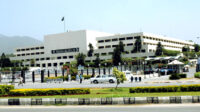Sept 13, 2021: The area around Chaman Hozori neighbourhoodof Kabul is full of refrigerators, cushions, fans, pillows, blankets, silverware, curtains, beds, mattresses, kitchen utensils and shelves that hundreds of Afghans carry for sale.
The goods line the blocks surrounding the once grassy field that has turned to dirt and dust, the result of decades of inattention and drought. Each item amounts to a part of a life families built over the last 20 years in the Afghan capital. Now, they are all being sold at meager amounts to feed those very households.
Afghans have been facing a cash crunch since the Taliban took control of the capital August 15. The World Bank, the International Monetary Fund and the US Federal Reserve have cut off access to Afghanistan’s international funds in recent weeks. Banks were closed all over Afghanistan and many automatic teller machines were not paying cash.
Since many banks have reopened, a weekly withdrawal limit of 20,000 afghani currency (232USD) has been imposed. Hundreds of Afghan men and women lined up outside the country’s banks on their days, waiting for an opportunity to withdraw funds.
Even before former President Ashraf Ghani fled the country and the Taliban took control, Afghanistan was already facing a sluggish economy exacerbated by the global COVID-19 epidemic and a prolonged drought that has affected agriculture.
In a report released last week, the UN warned that by mid-2022, more than 97% of the Afghan population could fall below the poverty line. On Monday, UN chief Antonio Guterres convened a high-level humanitarian conference on Afghanistan in Geneva, which sought to raise 600 600 million, about one-third of which would go to food aid.
The world body has previously expressed deep concern over the economic crisis and the threat of a “complete breakdown” in Afghanistan.
According to the World Bank, a nation is considered dependent on aid when at least 10% of its gross domestic product (GDP) comes from foreign aid. Over the past 20 years, 40 percent of Afghanistan’s GDP has come from international aid, and now, with many countries refusing to recognize the Taliban government, experts warn that the country is heading for economic collapse.
Addressing the Atlantic Council earlier this week, Ajmal Ahmadi, former governor general of Afghanistan’s central bank, said the nation could shrink its GDP by 10-20% if global sanctions were not lifted.
Afghan Taliban spokesman Zabihullah Mujahid said his government hoped China and Russia would make up for the shortfall in Western economic aid.
But so far neither Beijing nor Moscow has been able to make up for the shortfall. The impending crisis and the current liquidity crisis are already evident in many parts of the city, where people are selling everything to buy food and other basic necessities.
Even with the huge influx of goods, the makeshift shopkeepers operating their businesses on the pavement say they too are not turning a profit.
For many Afghans, the current situation in Afghanistan is attributable to the previous regime as opposed to the Taliban.
A driver delivering household goods looked at a nearby shopkeeper and said: “Take a picture and send it to Ashraf Ghani,” the former president who fled to the UAE on August 15. “Send it to him and say, ‘I hope you are living a good life. Now take a look at the filth you have left for the country.'”
Stay tuned to BaaghiTV for latest news and Updates!
PIA lands first commercial foreign flight in Kabul after Taliban takeover
Afghan pilots in Uzbek camp head to UAE defying Taliban’s demands






